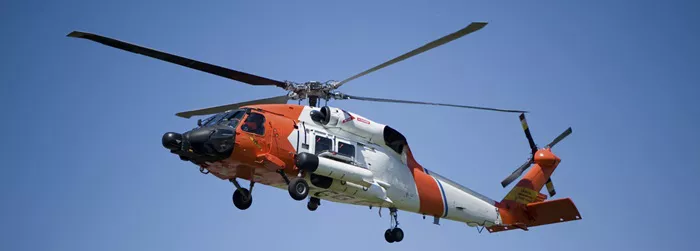Medical emergencies can strike at any time, often without warning, especially when one is traveling far from home. In such situations, access to prompt medical care becomes paramount. However, what if the medical facilities at your travel destination are inadequate to treat your condition? What if you need to be transported back to your home country for proper medical attention? This is where medical evacuation insurance plays a crucial role. In this essay, we will delve into the intricacies of medical evacuation insurance, exploring what it covers and why it is an essential aspect of travel preparedness.
Emergency Transportation
One of the primary components of medical evacuation insurance is emergency transportation. This aspect covers the costs associated with transporting individuals who have sustained serious or life-threatening injuries while traveling. The urgency of medical evacuation cannot be overstated, as timely access to appropriate medical facilities significantly improves the chances of recovery.
Medical evacuation insurance typically covers the expenses incurred in arranging emergency transportation to the nearest adequate treatment center. This may involve air ambulance services, ground transportation, or even repatriation to the individual’s home country if deemed medically necessary. The coverage extends beyond mere conveyance; it encompasses the logistical and administrative aspects of coordinating urgent medical transportation, ensuring that the patient receives timely and appropriate care.
In scenarios where the medical condition warrants specialized care available only in the individual’s home country, medical evacuation insurance steps in to facilitate repatriation. This ensures continuity of care and access to familiar medical professionals, which can be crucial for optimal treatment outcomes.
Medical Escort Upon Arrival
In some instances, the need for medical evacuation extends beyond transportation alone. Certain medical evacuation insurance policies include provisions for a medical escort to accompany the individual during their journey home. This medical escort serves as a vital link between the patient and the healthcare system, providing medical assistance and monitoring throughout the transportation process.
The presence of a medical escort offers reassurance to both the patient and their loved ones, ensuring that the individual receives continuous care and attention during transit. Moreover, the medical escort is equipped to handle any unforeseen complications that may arise during the journey, thereby enhancing the safety and comfort of the patient.
see also:Is Health Insurance required in USA?
Support Person Expenses
Medical emergencies not only impact the physical health of the individual but also take a toll on their emotional well-being. Recognizing the importance of emotional support during such challenging times, many medical evacuation insurance policies cover expenses for a family member or friend to fly to the patient’s bedside if they require medical evacuation.
The presence of a support person can provide much-needed comfort and reassurance to the patient, fostering a sense of emotional stability amidst the turmoil of the medical crisis. Additionally, having a familiar face by their side can facilitate communication with healthcare providers, ensuring that the patient’s needs and preferences are effectively communicated and addressed.
Flights for Children
For individuals traveling with children, the prospect of a medical emergency can be especially daunting. In such situations, medical evacuation insurance offers a vital safety net by covering the cost of transporting dependent children back home if there is no one available to care for them at the travel destination.
This provision ensures that the welfare of the children is safeguarded, even in the event of a medical crisis affecting their parent or guardian. By facilitating the repatriation of children to their home country, medical evacuation insurance mitigates the logistical complexities and emotional distress associated with such scenarios, providing peace of mind to travelers and their families.
Repatriation of Remains
While no one likes to contemplate the possibility of death during travel, it is essential to acknowledge and prepare for such eventualities. In the unfortunate event of a traveler’s demise while abroad, medical evacuation insurance covers the cost of repatriating their remains to their home country.
This provision not only alleviates the financial burden on the deceased’s loved ones but also honors their dignity by facilitating a respectful and dignified return to familiar surroundings. By ensuring that the final wishes of the deceased are fulfilled and their remains are handled with care and compassion, medical evacuation insurance provides solace to grieving families during an incredibly challenging time.
see also:How does government Health Insurance work?
Conclusion
In conclusion, medical evacuation insurance serves as a vital lifeline for travelers facing medical emergencies abroad. By covering the costs of emergency transportation, providing medical escorts, accommodating support persons, facilitating the repatriation of children, and honoring the dignity of the deceased through the repatriation of remains, medical evacuation insurance offers comprehensive protection and peace of mind.
As global travel continues to increase in popularity, the importance of medical evacuation insurance cannot be overstated. It is not merely a financial investment but a safeguard against unforeseen medical contingencies, ensuring that travelers can access prompt and appropriate medical care wherever they may be. Therefore, it is incumbent upon all travelers to prioritize their safety and well-being by securing adequate medical evacuation insurance coverage before embarking on their journeys.
FAQs About Medical Evacuation and Travel Insurance
1. What Is the Meaning of Medical Evacuation?
Medical evacuation, often referred to as “medevac,” is the process of transporting a patient to a medical facility when they require urgent medical care that is not available at their current location. This can involve air or ground transportation and is typically used in emergencies where immediate and specialized medical treatment is necessary to save lives or prevent serious health deterioration. Medical evacuation services are crucial in remote or underdeveloped areas
where medical facilities are limited or non-existent.
2. What Is the Best Travel Insurance for Medical Emergencies?
The best travel insurance for medical emergencies depends on your specific needs, travel destinations, and personal health conditions. However, some highly-rated travel insurance providers known for comprehensive medical emergency coverage include:
- Allianz Global Assistance: Offers extensive coverage for medical emergencies, evacuation, and repatriation.
- World Nomads: Known for covering a wide range of adventure activities and offering robust medical coverage.
- AXA Assistance USA: Provides comprehensive emergency medical and evacuation coverage with high coverage limits.
- IMG (International Medical Group): Offers various plans tailored to different types of travelers, with strong medical emergency and evacuation benefits.
- Travel Guard by AIG: Known for its extensive coverage options, including emergency medical and evacuation services.
When choosing travel insurance, look for policies that offer high limits for medical expenses, coverage for medical evacuation and repatriation, and 24/7 emergency assistance services.
3. What Does Global Rescue Cover?
Global Rescue provides a range of services focused on medical, security, evacuation, and travel risk management. Their coverage typically includes:
- Medical Evacuation: Transportation to the nearest appropriate medical facility if local care is inadequate.
- Security Evacuation: Evacuation services in response to security threats such as natural disasters, political unrest, or terrorist attacks.
- Medical Consultation: Access to medical professionals for advice and consultation regarding health issues while traveling.
- Field Rescue: Emergency rescue services from the point of injury or illness to a medical facility.
- Travel Assistance: Services such as travel planning support, lost luggage assistance, and visa information.
Global Rescue’s services are particularly valuable for travelers in remote or high-risk areas where immediate medical or security assistance may be needed.
4. What Are the 4 Types of Evacuation?
The four primary types of evacuation include:
Medical Evacuation (Medevac)
- Definition: Transporting patients to medical facilities when they need urgent care.
- Typical Use: For severe injuries or illnesses requiring specialized medical treatment.
Emergency Evacuation
- Definition: Rapid removal of people from an area due to an imminent threat.
- Typical Use: Natural disasters, industrial accidents, or other immediate hazards.
Security Evacuation
- Definition: Evacuation due to security threats.
- Typical Use: Political unrest, terrorism, or civil disturbances.
Preventive Evacuation
- Definition: Proactive evacuation to avoid potential threats.
- Typical Use: In anticipation of natural disasters, such as hurricanes or floods, where there is advance warning.
Each type of evacuation is designed to address specific threats or emergencies, ensuring the safety and well-being of individuals at risk.
You Might Be Interested In





















